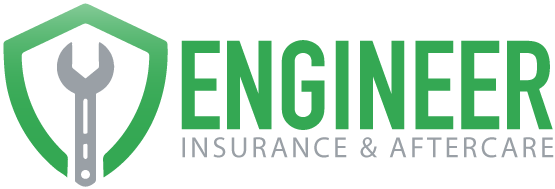Accidents happen all the time, even to the most experienced and diligent drivers. So here are the Engineer Aftercare Warranty, top tips and some advice on what to do in the event of an accident!
Remember! In the event of an accident, you will need a pen, paper and ideally a phone or dash cam to hand. Always keep a pen and a note pad in your vehicle at all times.
Make sure everyone is safe
If you’re unfortunate enough to end up in an accident, you want to make sure both you and your passengers are safe right away. That said, in the case that you have been in a fairly serious accident, the NHS advises that you don’t move anyone who is in a lot of pain in the case they’ve broken a bone, or importantly their back. It may take a moment to process what’s happened but take a deep breath, stay calm and immediately get to safety and off of the road.
If you have a breakdown triangle deploy it and high vis jackets please wear them
1; The first thing to do following any crash is make sure everyone is safe.
2: Call the emergency services. If the accident is a minor one, it may be possible to simply share your personal details and insurance details with the other party. BUT, in almost all cases, we recommend you call 999 and inform the Police you have been involved in an accident and where you are.
*In some European countries you must inform police of any accident, even if no-one is injured. Check online for advice on what to do in the event of an accident in the country in which you plan to travel.
3: Swap details with the other driver and record the incident
After you’ve called the emergency services and you’re in a safe space, you should exchange details with any other drivers and their passengers who were involved. It’s also a good idea to get the details of any passers-by or other drivers who witnessed the incident. You should still do this if the owner of the involved vehicle is not at the scene, for example you’ve hit a parked vehicle.
Your insurance company will prefer that YOU DO NOT at the time say the accident was your fault, even if you believe it was. If you believe you were at fault, you can always explain this to your insurance company, which will speed up any claim process. NEVER avoid fault, be evasive or tell lies to the emergency services or your insurer, this is called ‘Fraud’ and can carry heavy penalties.
4: Make sure to take note of the following:
- Take a picture or make a note of how many people are in the other car at the time
- Swap Names, address and contact numbers with the other parties and any witnesses
- Make a note of the Date and time of the accident
- Colour, registration, make and model of any vehicles involved
- Description of the weather conditions, the state of the road and any street lighting
- Any damage caused to any vehicles and property
- Any injuries sustained by drivers, passengers and pedestrians
- If you have a dashcam, keep any image data safe for the Police or your insurer to inspect
5: Once you have all the details of the accident or other driver etc, and regardless of whether or not the other party is still on site, wait for the emergency services if you have called them
6: Either at the time or as soon as is possible afterwards, call your insurance company and tell them about the accident, referring to your notes made at the time
Taking notes and photographs means You will be able to make a clear case as to who was responsible for the accident, but the ultimate decision on who pays the costs will lie with the insurance company.
Does & Dont’s:
- Do make clear and concise notes about as much of the location and accident as possible
- Do stay relaxed and never argue over cause or who was to blame, this will be sorted by your insurer and or the Police
- Don’t offer to make any immediate payment for damage or agree to pay for any damage at this point. Let your insurance company sort this out for you
- Don’t say it is your own fault at the time, there may be any number of factors at the time



